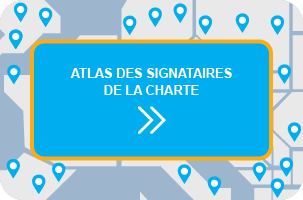Île-de-France – Campagne de lutte contre le harcèlement dans les transports
En France, 87 % des usagères des transports en commun déclarent avoir déjà été victimes de harcèlement sexiste, de harcèlement sexuel, d’agressions sexuelles ou de viols dans les transports en commun, selon une enquête de la Fédération Nationale des Associations d’Usagers des Transports (FNAUT) en 2016.
La Région Île‑de‑France (qui est signataire de la Charte Européenne depuis 2008), avec Île-de-France Mobilités, la RATP et SNCF Transilien, ont initié ensemble une vaste campagne de communication visible sur l’ensemble du réseau de transports en commun avec le message « Ne minimisons jamais le harcèlement sexuel : victimes ou témoins, donnez l’alerte ! ». Cette campagne cherchait à sensibiliser tous les voyageurs à la lutte contre le harcèlement ainsi qu’en les encourageant à dénoncer les actes dont ils pourraient être victimes ou témoins.
Face au choc ou à la peur des représailles, les témoins présents n’ont généralement aucune réaction. Cette campagne avait pour objectif de sensibiliser les voyageurs sur le sujet, de les responsabiliser et de les associer en montrant que chacun a un rôle à jouer dans la lutte contre le harcèlement en rappelant notamment les bons réflexes.
L’enjeu de cette campagne était également d’apporter des réponses concrètes en faisant connaître les outils de signalement du harcèlement comme les numéros d’alerte (3117 et SMS 31177, l’application 3117), les bornes d’appel ou bien encore inciter à prévenir les agents présents dans les transports publics.
Cette initiative est en conformité avec la Charte Européenne pour l’égalité des femmes et des hommes dans la vie locale : Article 26 Mobilité et transport et Article 22 – La violence sexuée.
Des informations détaillées sur la campagne sont disponibles ici.













